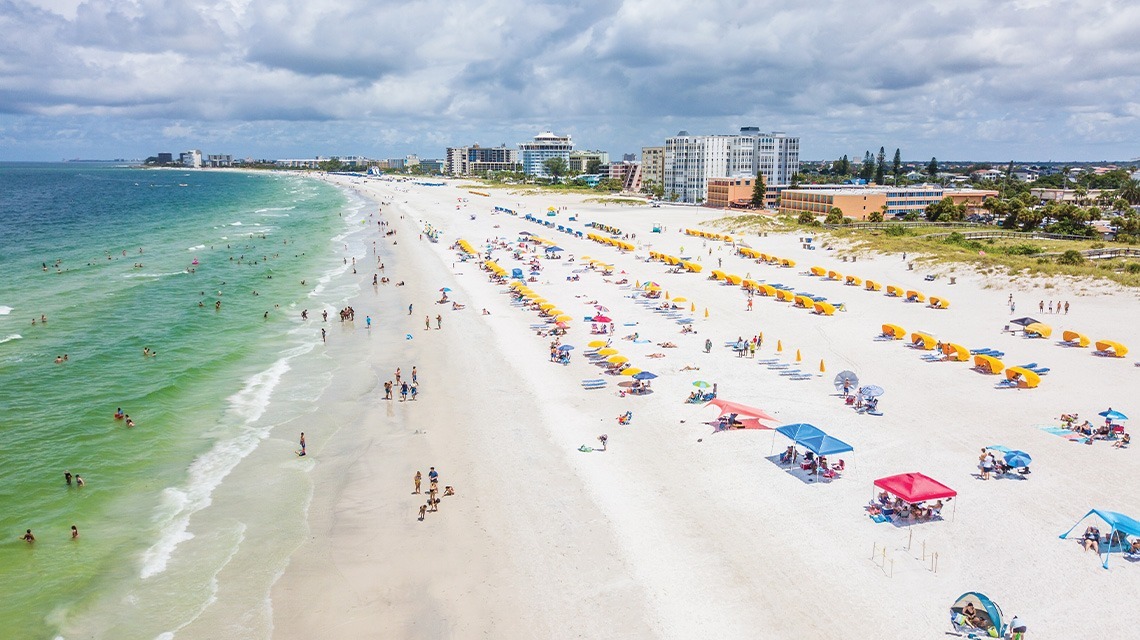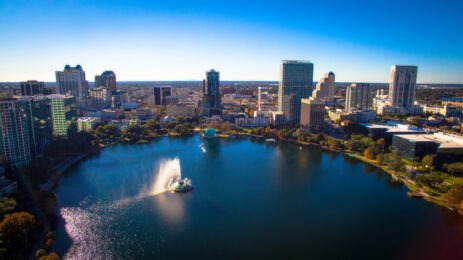Updated: 5/3: A pair of bills passed by The Florida House of Representatives that could change how tourism taxes are used in the state remain in limbo as the legislature ended its session without passing a budget on Friday.
HB 1221 (Local Option Taxes) has been edited since it was introduced in February, but according to a bill analysis filed April 22, the effect of the measure which passed by a margin of 62 to 45, would be to “change tourist development taxes (TDTs) from limited use revenue to general revenue, which must be used to offset county property taxes” beginning in 2026.
It would dissolve tourist development councils and promotional agencies unless approved by a resolution of the board of county commissioners. The bill made allowances for fulfilling contracts in place as of Jan. 1, including servicing bonds but said they cannot be renewed or extended. That could impact investments in event and hospitality infrastructure and resources.
Discover the Palm Beaches CEO Milton Segarra, CDME warned of the consequences to the livelihoods of 90,000 Floridians. “Tourism is the lifeblood of Florida’s economy, particularly in Palm Beach County. The TDT, paid by visitors and not by Floridians, is reinvested in destination promotion efforts that attract even more visitors. This cycle generates jobs, fuels local businesses and supports critical public services. Eliminating TDT funding for this purpose would severely hinder our ability to compete for visitors, leading to long-term economic pain,” he said in a statement emailed to Smart Meetings.
He added, reallocating these dollars to provide property tax relief to our county property owners diminishes the importance of tourism marketing and promotion in our county. With 655,933 residential and commercial properties in our county, a reduction of property taxes amounts to about a $5.25 reduction per $10 million property tax cut for a property based on the median home value. In contrast, every Florida household is currently saved $1,910 in taxes per year since tourism is one of the reasons why the Sunshine State remains state tax-free. Visitors generate more than $7 billion in direct spending within the county and contribute $10.5 billion to the local economy. “Tourism connects the community and creates a place where people want to visit, live, work, and invest.”
The bill made allowances for 1% higher taxes in “high tourism impact” counties if taxable sales exceed $6 million in the previous calendar year or were at least 18% of the county’s total sales.
Companion bill HB 7033 (Taxation) which passed 78 to 29, also changed TDTs from limited use to general use and reduced state sales tax rates by .75%.
Destinations Florida Executive Director Robert Skrob told Florida Politics, “This proposal gambles with the livelihoods of more than 2 million Floridians, from hotel workers to small business owners, and risks collapsing the tax base that makes Florida’s income tax-free status possible.”
The Florida Attractions Association said in a statement that the bills would result in eliminating funding for tourism promotion, marketing and the development of tourism facilities. “These proposed measures would have a profound effect on the tourism industry in Florida, devastating how tourism is promoted and supported in your county,” it read.
Don Welsh, president and CEO of Destinations International, called the move an economic cliff in a state that has no income tax in part because of the bounty of tourism dollars. He said in an opinion piece in today’s Tampa Bay Times, “It cuts the funds allocated to promote and encourage tourism, which fuels the significant economic impact of tourism across the state.”
Governor Ron DeSantis recently announced that Florida reached historic high record number of tourists in 2024 and “continues to be the top destination for travelers from all over the world.” A total of 142.9 million visitors arrived in 2024, a 1.6% increase over 2023, the previous record annual visitation in the state’s history.
Reached by phone on Friday evening, Welsh added, “This is poorly timed and, frankly, irresponsible.” He pointed to the decline of visitors to the United States from outside the country already happening due to national politics and said, “This is the time to take nothing for granted. We will see an immediate response if there is a removal of investment of money paid by visitors in facilities and venues.”
The bill was referred to appropriations and will go to the senate next as part of state budget discussions. The session ends Friday, May 2.




